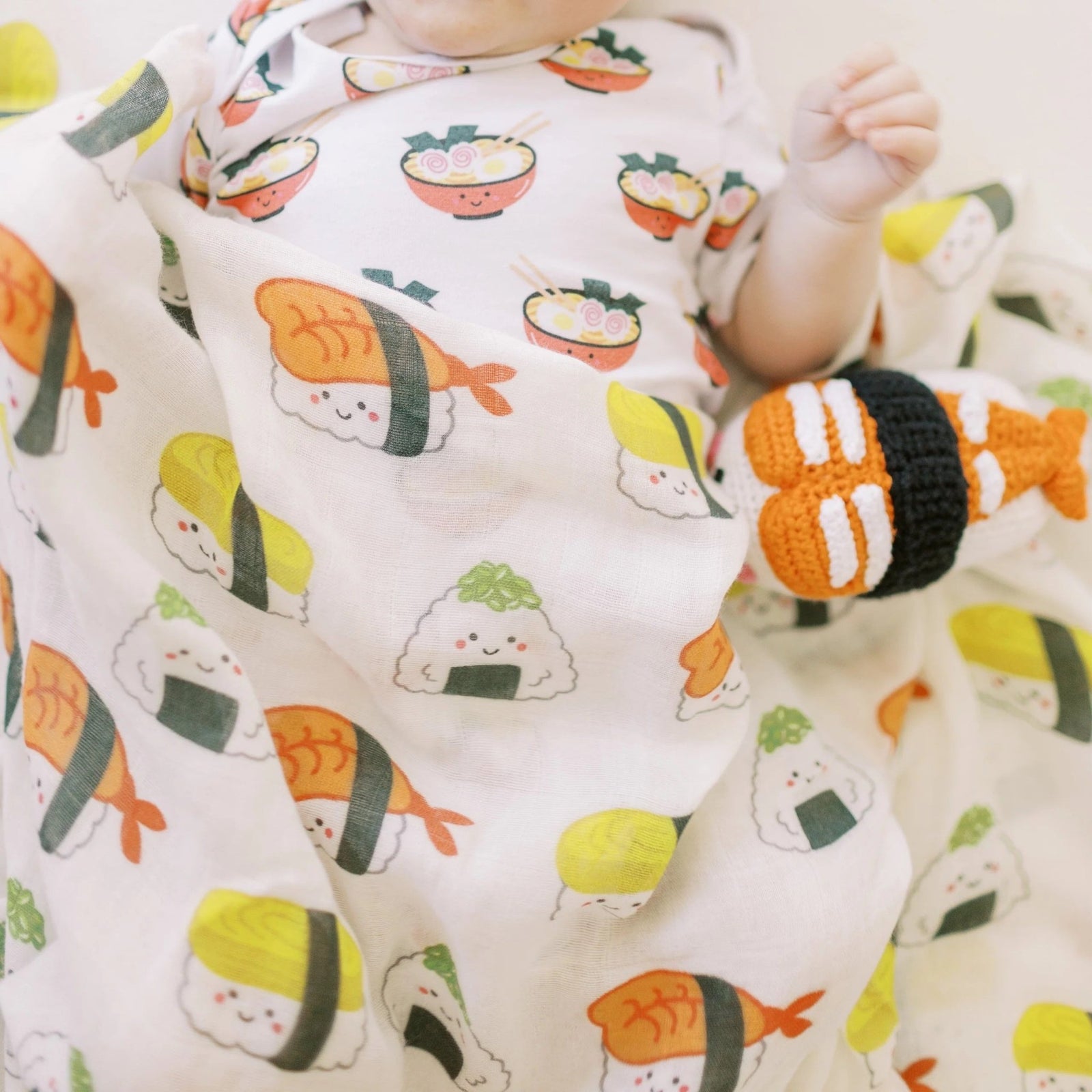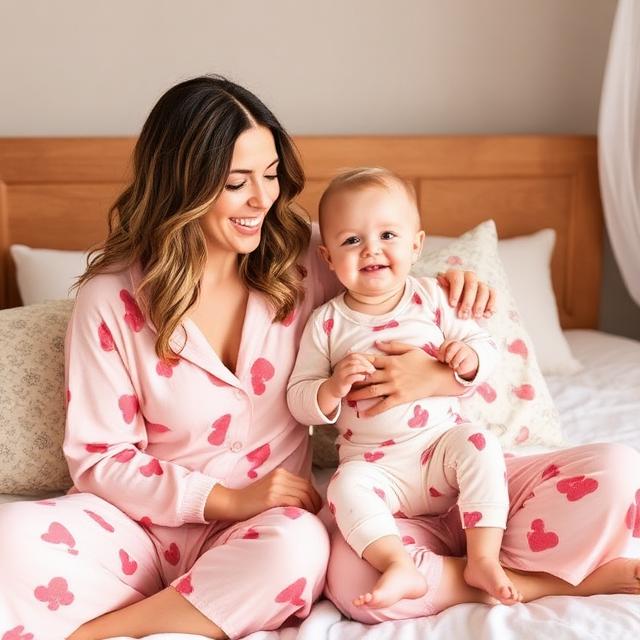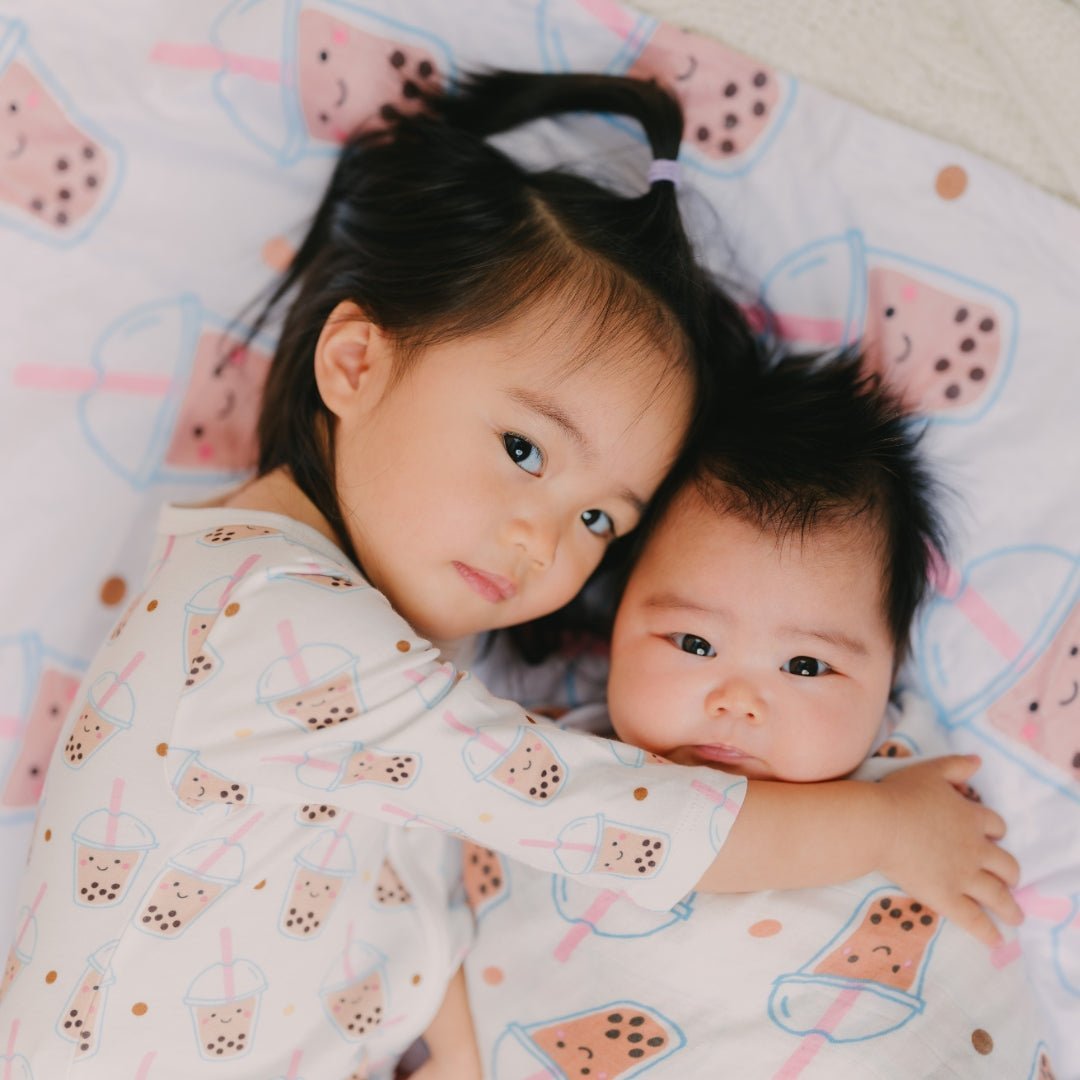Your Cart is Empty
Gift Sets
Categories

Top 5 Organic Fabrics for Baby Clothing: A Guide to Healthy, Comfortable Choices
by Adrian Ma February 01, 2024 5 min read
When it comes to dressing your baby, comfort and safety are top priorities. Choosing organic fabrics is one of the best decisions you can make for your little one's sensitive skin, especially for those with eczema. Organic baby clothing not only provides a soft and gentle touch but also minimizes exposure to harmful chemicals, contributing to a sustainable and eco-friendly lifestyle.

In this guide, we will explore the top five organic fabrics suitable for baby clothing, delving into the advantages and unique properties of each material. By understanding the benefits these fabrics offer, you can make informed decisions on the best clothing choices for your baby's comfort and well-being. The Wee Bean, a children's brand specializing in organic apparel and gifts for sensitive skin and eczema-prone babies, is committed to offering high-quality, eco-conscious, and comfortable clothing options for your little one.
1. Organic Cotton: The Versatile and Breathable Fabric
Organic cotton is the most common organic fabric used for baby clothing because of its impressive benefits. It is grown without the use of toxic pesticides or genetically modified organisms (GMOs), ensuring a safer and more eco-friendly product. It's also highly breathable, soft, and gentle on your baby's sensitive skin.

Additionally, it is hypoallergenic, making it an ideal choice for babies with allergies, eczema, or other skin sensitivities. Its moisture-wicking properties help keep babies dry and comfortable throughout the day. Organic cotton is a versatile fabric that can be used for various clothing items, from onesies and sleepwear to blankets and burp cloths, making it an essential component of your baby's wardrobe.
2. Bamboo: The Sustainable and Antibacterial Option
Bamboo is a fast-growing, renewable resource, making it a highly sustainable option for baby clothing. This eco-friendly fabric boasts a range of beneficial features, including incredible softness, breathability, and thermoregulation properties. Bamboo fabric can naturally regulate temperature, keeping your baby cool in hot weather and warm in cold weather.

One of the most remarkable qualities of bamboo fabric is its antibacterial and antimicrobial properties, which can help prevent the growth of odor-causing bacteria and keep your baby smelling fresh. In addition, bamboo's hypoallergenic nature makes it perfect for babies with sensitive skin or eczema. The Wee Bean offers a selection of organic bamboo clothing items, prioritizing comfort, sustainability, and quality.
3. Organic Merino Wool: The Natural Temperature Regulator
Organic merino wool is a unique and luxurious fabric known for its softness and warmth. Unlike traditional wool, merino wool is much finer, giving it a softer feel on your baby's delicate skin. It comes from sheep raised on pesticide-free and ethical farms, adhering to strict organic standards.

This natural fiber is renowned for its temperature-regulating properties, allowing for breathability and moisture management. It wicks away moisture and maintains an ideal microclimate for your baby's skin, preventing overheating and ensuring comfort in varying weather conditions. Organic merino wool's hypoallergenic properties make it a valuable option for sensitive or eczema-prone skin, lessening the likelihood of irritation.
4. Tencel™ Lyocell: The Environmentally Responsible Fabric
Tencel™ Lyocell, derived from sustainably sourced eucalyptus trees, is another excellent choice for eco-conscious parents. This fabric is made through an environmentally responsible closed-loop production process that recovers and reuses water and solvents.

Tencel™ Lyocell offers a silky-smooth and soft texture, making it gentle on your baby's skin. Its outstanding moisture-absorption properties—50% greater than cotton—keep your baby dry and comfortable. This fabric's breathability, hypoallergenic nature, and minimal static charge provide a comfortable and soothing clothing option for your little one.
5. Organic Hemp: The Durable and Eco-Friendly Choice
Organic hemp is a strong, resilient, and eco-friendly fabric suitable for baby clothing. Hemp requires minimal water, no pesticides, and grows quickly, making it an ideal choice for sustainable farming practices.

Organic hemp fabric provides natural UV protection, shielding your baby's skin from harmful UV rays. It is also naturally antimicrobial and hypoallergenic, reducing the risk of skin irritations. This durable material becomes softer with every wash while retaining its strength, ensuring long-lasting baby clothing items that can withstand everyday wear.
Caring for Your Baby's Organic Clothing
Proper care of organic baby clothing is essential for maintaining the quality and durability of these fabrics. Always follow the care instructions on the garment's label. In general, washing organic fabrics in cold water and using gentle, eco-friendly detergents are recommended. Avoid using fabric softeners and bleach, as they can damage the fabric and reduce its natural benefits.
Fostering Sustainable, Healthy, and Comfortable Choices

Organic fabrics are a conscientious choice, offering benefits for your baby's comfort, health, and the environment. By considering the unique features and values of each fabric, you can create a versatile and eco-friendly wardrobe that caters to your baby's needs. The Wee Bean is dedicated to helping you make informed decisions when selecting organic clothing for your little one, ensuring a healthy, comfortable, and sustainable experience.
The Future of Your Baby's Wardrobe: Soft, Sustainable, and Organic
Selecting organic fabrics for your baby's clothing can significantly impact their comfort, well-being, and the environment. These top five organic fabrics, ranging from organic cotton and bamboo to organic merino wool, Tencel™ Lyocell, and organic hemp, offer unique benefits catered to your baby's sensitive skin, ensuring a healthy and eco-friendly wardrobe.

The Wee Bean, a children's brand specializing in organic apparel and gifts for little ones with sensitive skin and eczema, provides an extensive range ofbaby clothing items made from these superior fabrics, highlighting our commitment to quality, sustainability, and comfort. Explore our collection of organic baby clothing at The Wee Bean, and embrace the future of your little one's wardrobe, where softness, sustainability, and organic fabrics reign.
---------------------------------------
Frequently Asked Questions: Organic Fabrics for Baby Clothing
1. Why should I choose organic fabrics for my baby's clothing?
Organic fabrics are free from harmful chemicals and pesticides, making them gentle on your baby's sensitive skin. They reduce the risk of allergies and skin irritations, providing a safer and more comfortable option for your little one.
2. What are the most common organic fabrics used in baby clothing?
Common organic fabrics include organic cotton, bamboo, hemp, and wool. These materials are known for their softness, breathability, and hypoallergenic properties, ensuring your baby's comfort throughout the day.
3. Are organic baby clothes more durable than conventional ones?
Yes, organic fabrics often have stronger fibers since they aren't weakened by harsh chemical treatments. This means organic baby clothes can withstand more washes and wear, making them a durable choice for active infants.
4. Do organic fabrics offer environmental benefits?
Absolutely. Organic farming practices for these fabrics use less water, avoid toxic chemicals, and promote soil health. Choosing organic baby clothing supports sustainable agriculture and reduces environmental impact.
Leave a comment
Comments will be approved before showing up.
Also in Latest Blog Posts

Long Lasting Organic Baby Clothes: Washing and Care Tips for Clothes That Truly Last
by Adrian Ma February 06, 2026 7 min read
Organic baby clothing is designed to be gentle on delicate skin, free from harsh chemicals, and made with natural fibers that breathe and soften over time. With the right care, these garments can last far beyond the newborn stage and become meaningful pieces passed down through siblings or even gifted to another family. This guide walks you through exactly how to wash, dry, and store organic baby clothes so they maintain their quality and comfort for the long run.

New Year, New Mindset for 2026: Embracing Body Positivity in Motherhood
by Adrian Ma January 27, 2026 6 min read
Learn how to embrace body positivity after pregnancy with practical, research-backed strategies for postpartum mothers in 2026.

The Ultimate Guide to Buying Baby Clothes: How Much Does Your Baby Actually Need?
by Adrian Ma January 11, 2026 5 min read
Welcoming a new baby is one of life’s most joyful milestones, but it also brings a long list of decisions, especially when it comes to choosing baby clothes. New parents often find themselves wondering, How many baby clothes does a newborn really need? or Should I buy more newborn sizes or skip ahead to 0–3 months?
Recently viewed products
Sign up to get 15% OFF your first order
Sign up to get the latest on sales, new releases and more …

